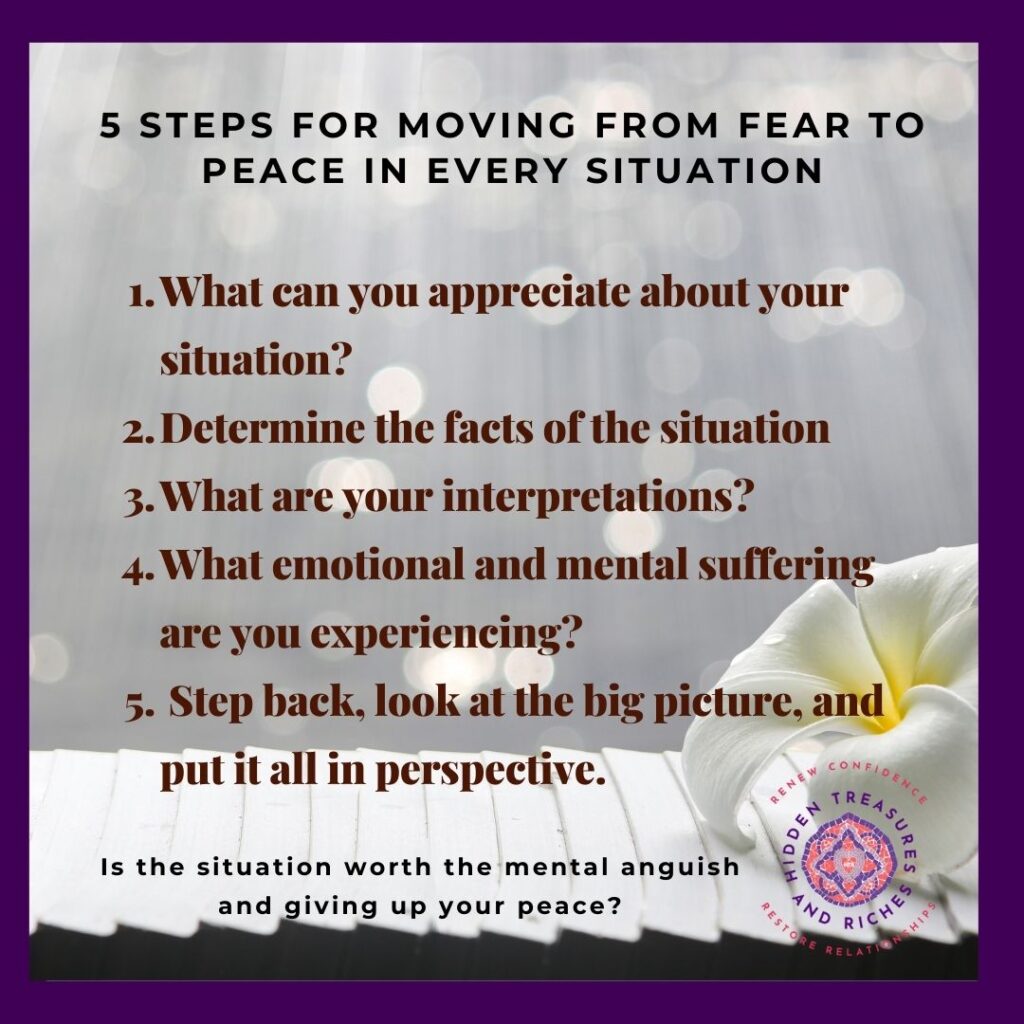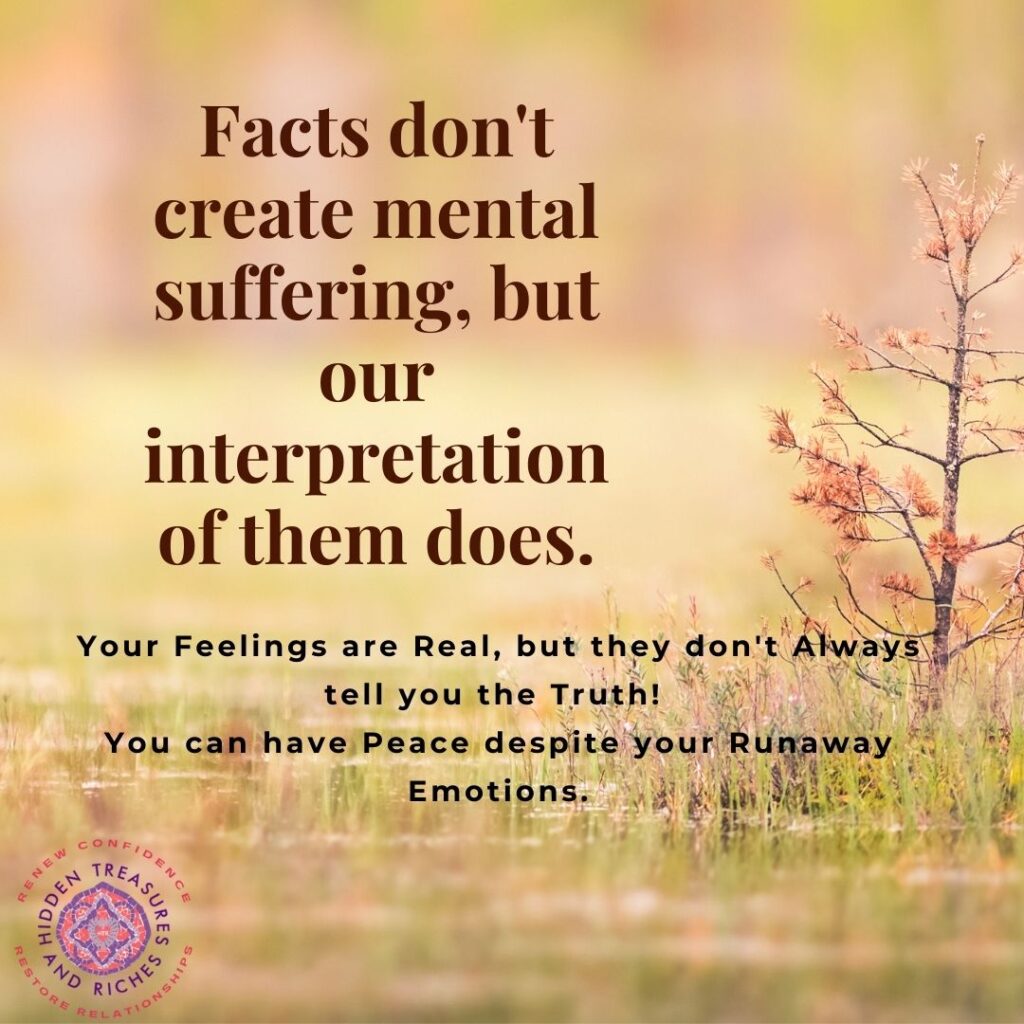Is fear controlling your life, or do you feel inadequate and powerless in some situations? Are you stuck in unhealthy patterns?
At one time or the other many of us feel F-E-A-R, False Evidence Appearing Real. The fear of not being enough is a common fear that can hold us from living God’s best for our lives.
A Listening Heart

Take the first step towards healing and growth. Book your free call now and let’s journey together in faith and friendship.
What is at the root of our fears? Most of our fears stem from past experiences, especially from childhood. Maybe you grew up with alcoholic parents, or your mother neglected you, or your father abandoned you. Perhaps your siblings rejected and bullied you, or you grew you in an overcritical home.
It’s easy to let the chaos and pain from our past define us negatively. It can lead to lifelong struggles with the fear of failure, fear of rejection, and feelings of inadequacy. It could also lead to perfectionism and attention-seeking behaviors.
Would you like to work through your fears?
We can kick our fears in the gut if we look at them objectively. I hope that these 5 steps will help you exchange your worries for inner peace and freedom found in Jesus. Let’s use Elijah’s story in 1 Kings 18 and 19 to illustrate these 5 steps.
5 Steps for Moving from Fear to Peace
King Ahab and his wife Jezebel led the Israelites to worship Baal instead of God. Elijah was a prophet who challenged the Israelites to choose who they will serve. Elijah killed the prophets of Baal (1 Kings 18), and when Jezebel heard about it, she threatened to kill Elijah (1 Kings 19:1-2). Elijah was so afraid, he ran away to the desert and prayed he might die.
I have had enough, Lord. Take my life; I am no better than my ancestors. Then he lay down under the tree (1 Kings 19: 4-5)
Suppose you are beating yourself up or judging yourself like Elijah because of your feelings of inadequacy and negative thoughts. In that case, it is time to take action and separate the facts from fiction.

- What can you appreciate about your situation?
Let’s examine what Elijah could appreciate about himself and his situation.
- Elijah was a prophet of God.
- He challenged and defeated Baal’s priests.
- He prayed for an end to the drought in the nation. God answered his prayer (1 Kings 18:45).
It’s essential to affirm what we are good at because our fears only magnify our weaknesses.
- Determine the facts of your situation.
What were the facts of Elijah’s situation? This requires an objective evaluation of the problem.
- The Israelites abandoned God’s ways and worshipped Baal.
- As a prophet of God, Elijah confronted the king, Israelites, and the priests of Baal.
- He challenged them to choose between God and Baal.
- He prayed, and God accepted his sacrifice. The drought ended in the land.
- He called on God Jezebel threatened to kill him, and he fled to the desert.
- What are your interpretations of your situation?
Let’s look at Elijah’s take on the situation. What were his interpretations?
- I am the only one left.
- The Israelites rejected God’s Covenant. Now they are trying to kill me. (1 Kings 19:10, 14)
- I am powerless against Jezebel’s threat. I prefer to die!
- What emotional and mental suffering are you experiencing?
How did Elijah feel about Jezebel’s threat? He probably felt fear, anger, frustration, guilt, and self-doubt.
- Step back, look at the big picture, and put it all in perspective.
Let’s step back and take a broader look at all the parts of Elijah’s fear from a more objective perspective. When we separate the facts from Elijah’s interpretation, what we can say is that he challenged the priests of Baal and defeated them. He prayed for rain. God answered and brought an end to the famine in the land.
Moving from fear to peace–Now let’s put it all in perspective in perspective:
- Was Elijah’s worry about Jezebel’s threat a big deal, especially after he has witnessed God’s miraculous answers to his prayers?
- Now, take a look at your situation and apply these 5 steps.
- Does your situation deserve your worrying about it?
- Will this situation matter tomorrow, next week, 5-10 years from now?
- What can you do about it right now?
- What can you do to improve the situation next time?

Guess What! God was very understanding, and His response to Elijah was much more positive than he could imagine. God sent provision of food and rest for Elijah. There were still 7000 people in Israel who had not worshipped Baal (1 Kings 19:18) and 100 prophets in hiding. Elijah was not alone after all.
Whatever trauma or situations cause us to fear, we can have peace. When our sense of worth is connected with our performance, we will feel like a failure when we don’t meet our expectations. However, learning to separate the facts from our interpretation of events will bring clarity, inner peace, and freedom.
We can lean on God and Exchange our fears for His truth. God’s love for you:
- Is unconditional.
- Not dependent on your performance.
- Nothing can separate you from His love.
Reflect on Psalm 27:1. How can you use it to let go of fear?
You can face your fears with courage. Here are some additional Scriptures for moving from fear to peace: Isaiah 26:3, Psalm 56:3, 1 Peter 5:7
If you need coaching support, book a FREE Discovery Call Here.



